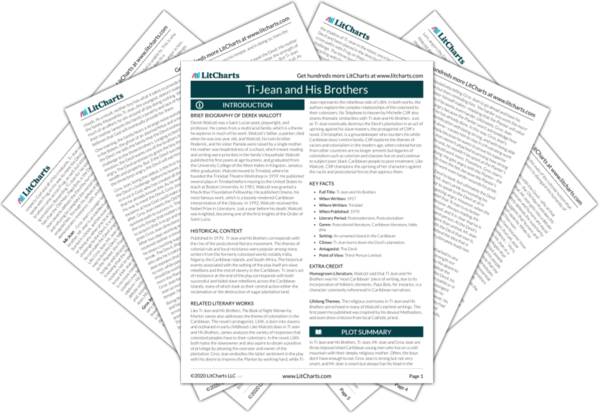Gros Jean’s behavior in this passage suggests that he has bought into the classic “rags to riches” archetypes. He believes, mistakenly, that he will be able to work his way to the top of the capitalist system and join the owning class. Clearly, he does not recognize the extent to which the system is rigged against him—through its racism and colonialism—as he is a poor, Caribbean black man. Indeed, the people at the top of the system, like the Planter, don’t even recognize Gros Jean’s humanity, as the Planter clearly reveals when he openly states that he forgets people like Gros Jean “aren’t machines.”


